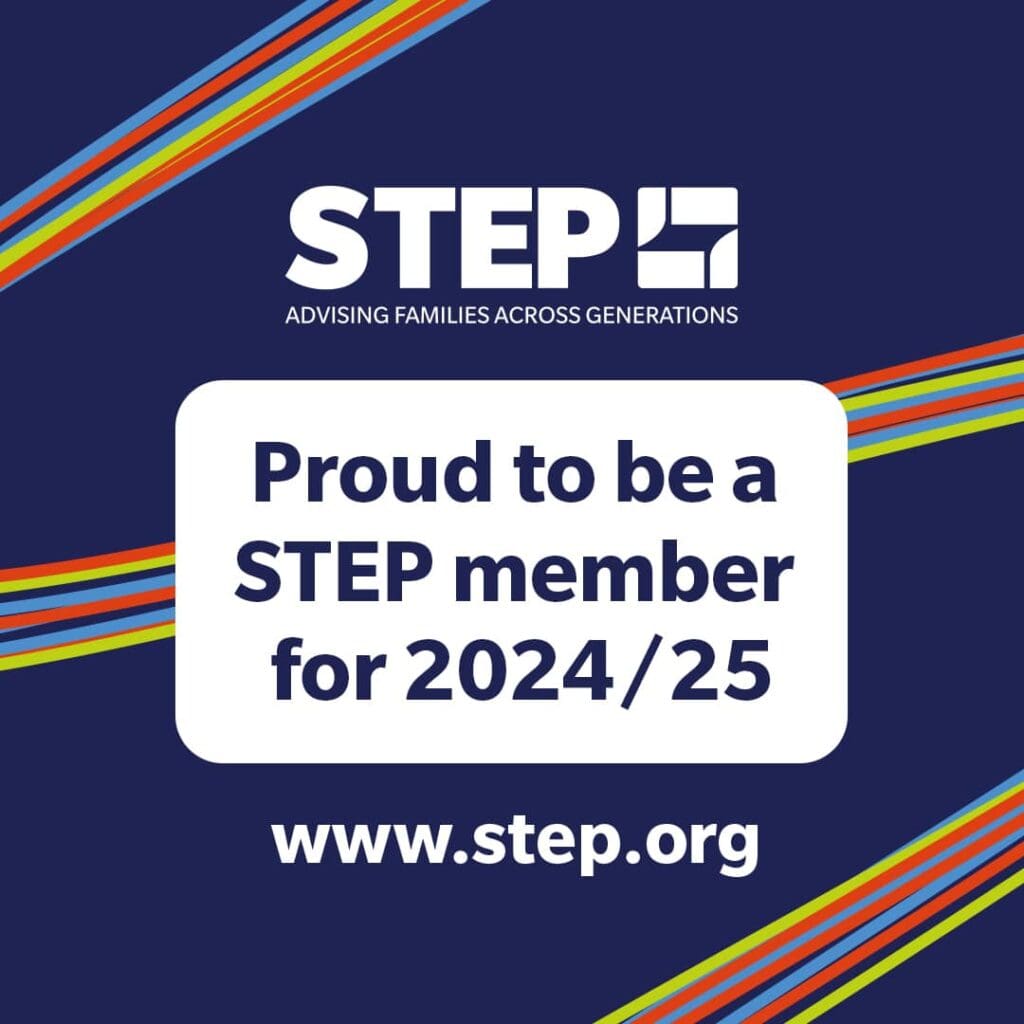Talking to loved ones about preparing a will may seem grim, but the reality is without a will, things could potentially become complicated and stressful.
When a person dies without leaving a valid will, their property must be shared out according to certain rules. These are called the rules of intestacy. A person who dies without leaving a will is called an intestate person.
Only married, civil partners and some other close relatives can inherit under the rules of intestacy.
If someone makes a will but it is not legally valid, the rules of intestacy decide how the estate will be shared out, not by the wishes expressed in the will.
Married partners and civil partners
Married partners or civil partners inherit under the rules of intestacy, only if they are actually married or in a civil partnership at the time of death. So, if you are divorced or if your civil partnership has been legally ended, you can’t inherit under the rules of intestacy.
Partners who separated informally can still inherit under the rules of intestacy. Cohabiting partners who were neither married nor in a civil partnership can’t inherit under the rules of intestacy.
Jointly owned property
Couples may jointly own their home. There are two different ways of jointly owning a home. These are beneficial joint tenancies and tenancies in common.
If the partners were beneficial joint tenants at the time of the death, when the first partner dies, the surviving partner will automatically inherit the other partner’s share of the property. However, if the partners are tenants in common, the surviving partner does not automatically inherit the other person’s share.
Joint property and money that the surviving partner inherits automatically does not count as part of the intestacy allowance, although it does still need to be valued for Inheritance Tax purposes.
Close relatives
Children of the intestate person will inherit if there is no surviving married or civil partner. If there is a surviving partner, they will inherit only if the sole estate is worth more than £270,000.
If there is no surviving partner, the children of a person who has died without leaving a will inherit the whole estate. This applies however much the estate is worth. If there are two or more children, the estate will be divided equally between them.
If there is a surviving partner, the partner will receive the first £270,000, with the balance being divided into two equal shares – one half will go to the partner and the other half between the children equally.
All the children of the parent who has died intestate inherit equally from the estate. This also applies where a parent has children from different relationships.
Adopted children (including stepchildren who have been adopted by their stepparent) have rights to inherit under the rules of intestacy. But otherwise you have to be a biological child to inherit. A stepchild who has not been formally adopted has no rights to inherit under the Intestacy rules.
Parents, brothers and sisters and nieces and nephews of the intestate person may inherit under the rules of intestacy. This will depend on a number of circumstances.
Other relatives may have a right to inherit if the person who died intestate had no surviving married partner or civil partner, children, grandchildren, great grand-children, parents, brothers, sisters, nephews or nieces’ grandparents.
If there are no surviving relatives
If there are no surviving relatives who can inherit under the rules of intestacy, the estate passes to the Crown. This is known as Bona Vacantia. The Treasury Solicitor is then responsible for dealing with the estate, including checking whether there are any living relatives.
If you are not a surviving relative, but you believe you have a good reason to apply for a grant, you will need legal advice.
For more information about Bona Vacantia, visit the GOV.UK website at www.gov.uk.
A Will and Funeral Plan are two of the most important decisions you will ever make, so we would advise you to do everything you can to make sure they are done properly. If you would like some advice on Funeral Planning, Will Writing, Power of Attorneys and how we can help you, you can call Sara on 01304 577998 or email sara@slswillsandmore.co.uk







